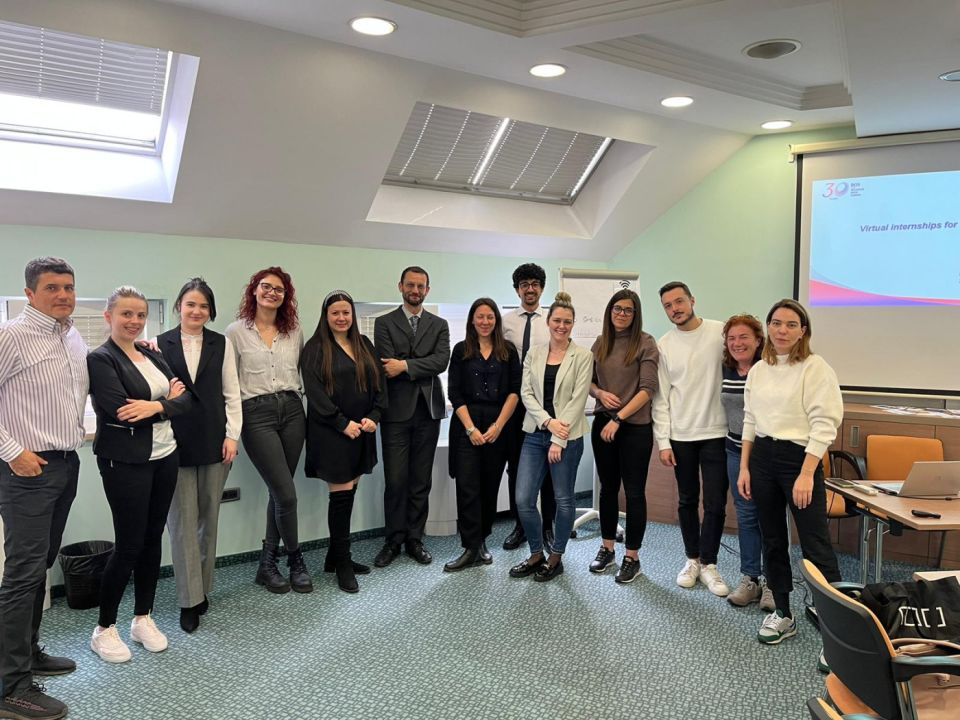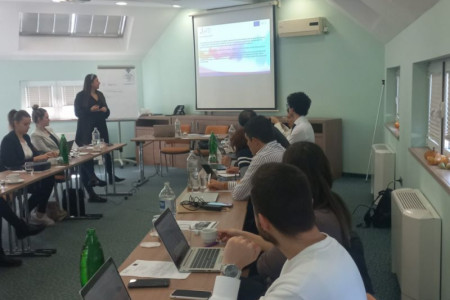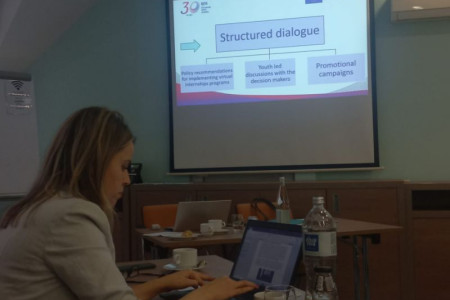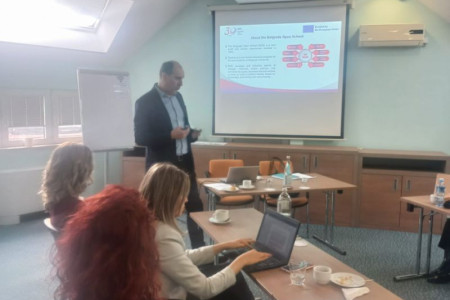The process of transition of young people from the educational system to the labor market, about modern trends, is largely supported by various multimedia tools. For young people, especially those from vulnerable social groups, to have the opportunity to access various internship and career development programs, regardless of geographical, physical, or other barriers, it is necessary to ensure the cooperation of different sectors that will contribute to the development of necessary competencies among young people.
The Belgrade Open School, as part of the "Virtual Practices for an Inclusive Society" project, organized an initial meeting of partners. At the two-day meeting, which was held on February 20th and 21st in the hotel "Prague", representatives of partner organizations that will participate in the implementation of the project were present: Association XANO Channel from Spain, Cultural Society Pixel from Italy, National Youth Council of Macedonia, Junior Achievement (Belgium) and Youth Achievements in Serbia.
To create a base for improving the practice program in the formal and informal systems of education, the participants had the opportunity to get to know each other and exchange proposals on the implementation of activities. The meeting was organized through several sessions, which give a more detailed insight into the activities for empowering young people, youth organizations, corporations, and teaching staff to initiate and implement cooperation, which will enable young people to have easier access to various internship programs as well as the process of transition to the labor market. To achieve the stated goal, an open platform will be created, which will enable young people to access virtual internships and acquire practical knowledge for further career development. A special segment of the meeting was focused on communication strategy and financial management during the implementation of the project plan.
The "Virtual practices for an inclusive society" project will be implemented in Serbia, North Macedonia, Belgium, Italy, and Spain between 2023 and 2024. The project was financed by the European Agency for Education and Culture through the Erasmus+ program.

 381 60 30 65 800
381 60 30 65 800









